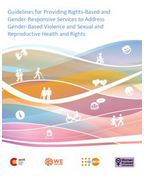Извор: WUNRN – 29.07.2021
Delete Ageism of Older Women in Albania – Report:
MarchOlderWomen.pdf (dropbox.com)
UN Decade of Healthy Ageing (who.int)
The United Nations Decade of Healthy Ageing (2021-2030) is a global collaboration, aligned with the last ten years of the Sustainable Development Goals, that brings together governments, civil society, international agencies, professionals, academia, the media, and the private sector to improve the lives of older people, their families, and the communities in which they live.
Populations around the world are ageing at a faster pace than in the past and this demographic transition will have an impact on almost all aspects of society. Already, there are more than 1 billion people aged 60 years or older, with most living in low- and middle-income countries. Many do not have access to even the basic resources necessary for a life of meaning and of dignity. Many others confront multiple barriers that prevent their full participation in society.
The COVID-19 pandemic has highlighted the seriousness of existing gaps in policies, systems and services. A decade of concerted global action on Healthy Ageing is urgently needed to ensure that older people can fulfil their potential in dignity and equality and in a healthy environment.
Decade Action Areas
To foster healthy ageing and improve the lives of older people and their families and communities, fundamental shifts will be required not only in the actions we take but in how we think about age and ageing.
The Decade will address four areas for action:
Age-friendly Environments
Physical, social and economic environments are important determinants of healthy ageing and powerful influences on the experience of ageing and the opportunities that ageing offers. Age-friendly environments are better places in which to grow, live, work, play and age. They are created by removing physical and social barriers and implementing policies, systems, services, products and technologies that address the social determinants of healthy ageing and enable people, even when they lose capacity, to continue to do the things they value.
Combatting Ageism
Despite the many contributions of older people to society and their wide diversity, negative attitudes about older people are common across societies and are seldom challenged. Stereotyping (how we think), prejudice (how we feel) and discrimination (how we act) towards people on the basis of their age, ageism, affects people of all ages but has particularly deleterious effects on the health and well-being of older people.
Integrated Care
Older people require non-discriminatory access to good-quality essential health services that include prevention; promotion; curative, rehabilitative, palliative and end-of-life care; safe, affordable, effective, good-quality essential medicines and vaccines; dental care and health and assistive technologies, while ensuring that use of these services does not cause the user financial hardship.
Long-term Care
Significant declines in physical and mental capacity can limit older people’s ability to care for themselves and to participate in society. Access to rehabilitation, assistive technologies and supportive, inclusive environments can improve the situation; however, many people reach a point in their lives when they can no longer care for themselves without support and assistance. Access to good-quality long-term care is essential for such people to maintain their functional ability, enjoy basic human rights and live with dignity.


